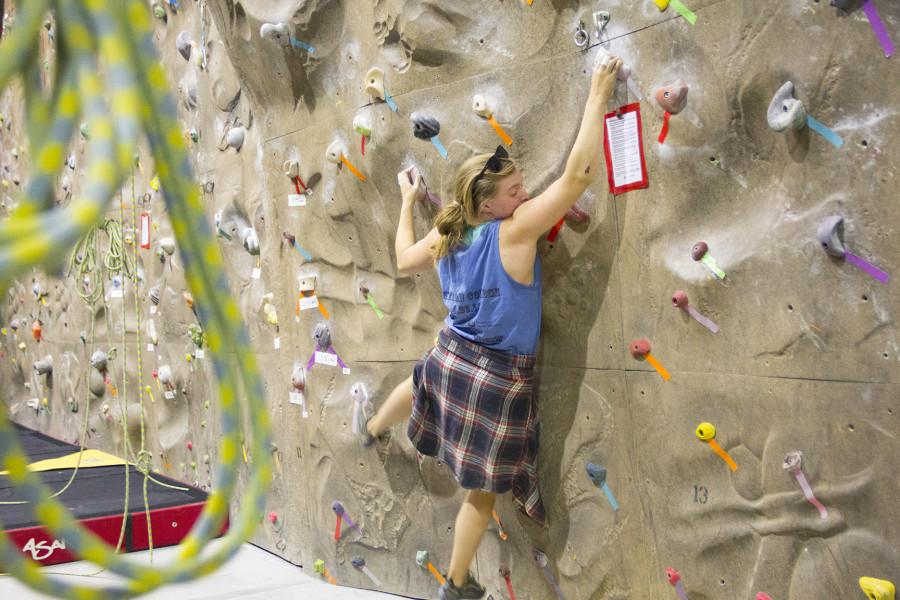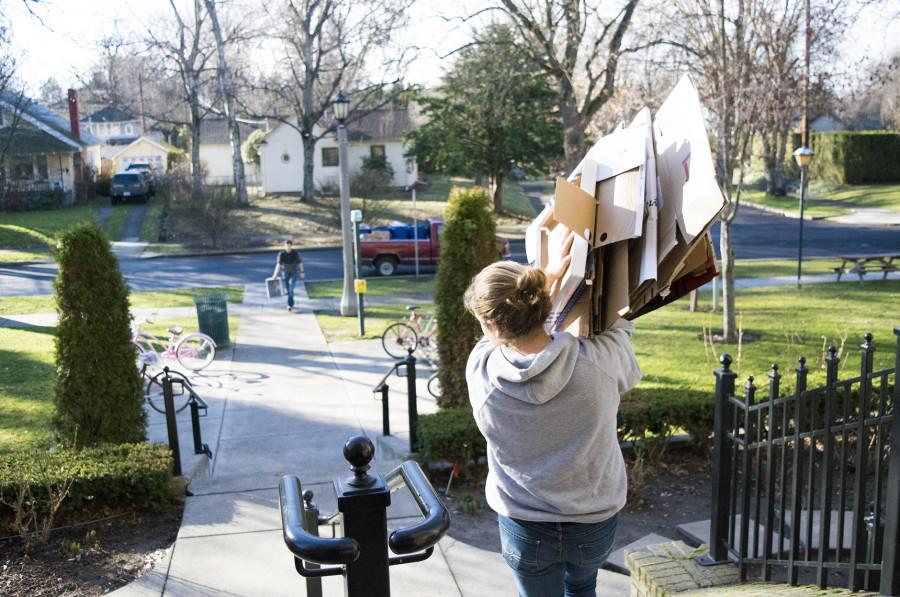High schools are like people: They have their own personalities, their own strengths and weaknesses, their own behaviors. In a way, our high school becomes one of the many aspects that define us. Because we are so connected to our secondary schooling, it is only understandable that it plays some role in the admissions process.
“You can’t separate the individual from their high school,” said Tony Cabasco, dean of admissions and financial aid.
Sixty-eight percent of the incoming fall class comes from West coast states, where highly ranked public schools are relatively common, especially in largely populated areas where the public schools are well-funded, such as suburbs around Seattle and southern California.
“About 70 percent of our students come from public high schools and about 30 come from private, independent high schools,” said Cabasco. “Those results happen primarily because we’re a West coast school, where most students attend public schools.”
Sophomore Matthias Needham, who attended a public high school in Tacoma, Wash., does not believe his public school background affected his chances of getting into Whitman.
“Not at all. However, my high school was in an affluent part of town,” said Needham.
While being interviewed, Cabasco hinted that it is not necessarily the issue of public versus private high schools that affects the admissions process, but the area in which the school is located and the funding it receives.
“You look at big, suburban, well-funded public schools in Minneapolis or in Denver, Seattle, Portland––it’s not as surprising that we have more students that come from public schools,” said Cabasco. “If you were to look at a liberal arts college like Whitman that’s located in the northeast, you’ll find that the number might be more like 50/50 or even 60 percent private, because in certain parts of the Northeast and the East coast, it’s more common for the kind of students that would look at Whitman to come from private schools.”
Cabasco also mentioned how the geographical area affects the academic intensity in public schools.
“I think in the West, public schools are stronger too,” said Cabasco.
In comparison to Whitman’s statistics, 52 percent of Middlebury College’s students come from public schools––still the majority but on a more even scale. In addition, 64 percent of the class of 2015 from Amherst College in Massachussetts attended public high schools, and 66 percent of the 2014 class at Oberlin College did as well.
Students coming from a high school with a steady flow of applicants to Whitman are already measured before the admissions office opens the actual application.
“There’s some schools that we get consistent applicants from and it sets up the data and there’s ways we can obviously measure,” said Cabasco. “We see the success rate of those students when they come to Whitman and we get a sense for, ‘Okay, students from that school will come to Whitman and do well’ … It gives us a barometer.”
Admission Officer Talia Gottlieb claims it’s not a private school or public school issue, but rather how one functioned as an individual within their own high school environment.
“How does your rigor, your GPA, your writing, your extracurriculars––how do these compare based on that singular school that we’re taking a look at?” said Gottlieb.
After being divided up into separate geographical areas, admission officers are expected to know the high schools in their area inside and out down to the very last detail.
“We’re expected to know the rigor of the schools, whether there’s weighting in terms of GPA or inflation of grades, so we as admission officers based on our own territories have to take a deep look at the qualifications of both public and private,” said Gottlieb.
When asked what they think, Whitman students had a variety of opinions.
“I do not think Whitman preferences,” said sophomore Brian Lewis, who hails from a private school in New Mexico. “The school I went to is also known for its rigor, which certainly did not hurt my chances.”
Sophomore David Wilson, who attended a public school in Washington, disagreed with the idea that private schools confer some sort of edge.
“I feel like private high schools have more college preparation and application assistance resources made available to their students,” said Wilson.
Disregarding whether or not Whitties come from public or private high schools, it is important to remember that each student was chosen to become a part of the Whitman community for a reason, that each acceptance letter was sent because the admissions staff believed the individual added to the class as a whole.
“I think to some extent once you are at Whitman, it is a clean slate, public or private,” said Julie Dunn, director of academic resources. “Whitman is a new chapter and while one’s previous schooling might bring certain strengths and challenges, what you are doing here and now is what is most important.”
















